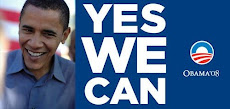By Matthew Benjamin
Sept. 24 (Bloomberg) -- Americans oppose government rescues of ailing financial companies by a decisive margin, and blame Wall Street and President George W. Bush for the credit crisis.
By a margin of 55 percent to 31 percent, Americans say it's not the government's responsibility to bail out private companies with taxpayer dollars, even if their collapse could damage the economy, according to the latest Bloomberg/Los Angeles Times poll.
Poll respondents say Democratic presidential nominee Barack Obama would do a better job handling the financial crisis than Republican John McCain, by a margin of 45 percent to 33 percent. Almost half of voters say the Democrat has better ideas to strengthen the economy than his Republican opponent.
Six weeks before the presidential election, almost 80 percent of Americans say the U.S. is going in the wrong direction, the biggest percentage since the poll began asking that question in 1991.
After market chaos this month drove Lehman Brothers Holdings Inc. into bankruptcy and prompted federal takeovers of American International Group Inc., Fannie Mae and Freddie Mac, most survey respondents said financial companies shouldn't expect taxpayers to rush to the rescue.
``Why should we help companies that can't help themselves?'' Tara Rook, 36, a Republican voter in Medford, New Jersey, asked in a follow-up interview. ``The government is getting way too involved with private companies.''
No Bailouts
Almost two out of three people surveyed also oppose government loans to help automakers. Congress is set to vote on a bill this month that includes $25 billion in low-interest loans to General Motors Corp., Ford Motor Co. and Chrysler LLC to develop more fuel-efficient vehicles.
In spite of opposition to government intervention in the private sector, Congress is likely to pass legislation to let the Treasury buy distressed assets from troubled financial institutions. Treasury Secretary Henry Paulson says a $700 billion rescue plan is needed to revive credit markets.
Public resistance to bailouts, however, may strengthen the position of lawmakers who want to put significant conditions on the plan, such as limiting executive pay at participating companies, and letting bankruptcy judges modify mortgages for struggling borrowers.
Caveats, Conditions
``While there are misgivings and concerns, ultimately the Congress will go along -- not simply with the bailout plan, but also with insisting on some add-ons, some caveats and some conditions which the White House will ultimately have to accept,'' saidKenneth Duberstein, former chief of staff to President Ronald Reagan.
A poll by the Pew Research Center for the People and the Press, asking a different question, found that Americans, by 57-30 percent, favored government action to save financial companies.
The Pew poll told respondents that the government is ``potentially investing billions to try and keep financial institutions and markets secure'' and asked whether that's the right thing to do. The Bloomberg/Los Angeles Times poll asked whether ``the government should use taxpayers' dollars to rescue ailing private financial firms whose collapse could have adverse effects on the economy and market, or is it not the government's responsibility to bail out private companies with taxpayers' dollars?''
Lax Regulation
More than 60 percent respondents to the Bloomberg/Los Angeles Times poll say lack of regulation is partly responsible for the financial and housing crises, while 24 percent say that wasn't the problem.
Asked who is to blame for the collapse of financial institutions like Lehman Brothers and AIG, nearly a third of Americans blame the firms themselves. One-quarter say the Bush administration is primarily responsible. Only 11 percent point fingers at Congress.
``I blame Wall Street,'' said Cindy Crick, of Flower Mound, Texas. ``The salaries are ridiculous, the bonuses are ridiculous,'' the 52-year-old paralegal and Republican voter said. ``It's greed, and it makes them willing to bend the rules.''
On the Wrong Track
Americans are extremely pessimistic about the state of the nation. Eight in 10 people say the country is seriously off on the wrong track. Concern about the country's direction crosses party lines, shared by 83 percent of political independents, 90 percent of Democrats and 60 percent of Republicans.
Eight in 10 respondents say the economy is doing badly, and more than half say it's doing very badly. Seven in 10 of those with annual incomes above $100,000 say the economy's in bad shape, along with almost nine in 10 of those earning between $40,000 and $100,000, and eight in 10 of those making less than $40,000.
The Sept. 19-22 poll of 1,428 adults nationwide had a margin of sampling error of plus or minus 3 percentage points.
Half of those interviewed say they feel less financially secure now than they did six months ago -- four times the number who say they feel more secure.
`Everything's More Expensive'
Gasoline prices are the biggest source of anxiety for Dave Masemer in Nashville, Tennessee. The 52-year-old meat buyer says high fuel costs hurt business for him and his customers. ``Everything's more expensive, gas has jumped $3 a gallon, it affects everything,'' Masemer, a Democratic voter, said.
The average price for a gallon of regular unleaded gasoline is $3.73, according to AAA. That's down from a peak of $4.11 in mid-July, but 92 cents higher than a year ago.
Among economic issues in the presidential campaign, respondents most often cited rising gasoline prices and stronger regulation of financial institutions as their most important concerns. More than one-fifth of Americans picked each of those issues. Only 7 percent say taxes are the top issue.
To contact the reporter on this story: Matthew Benjamin in Washington at mbenjamin2@bloomberg.net.
Last Updated: September 23, 2008 17:01 EDT



No comments:
Post a Comment